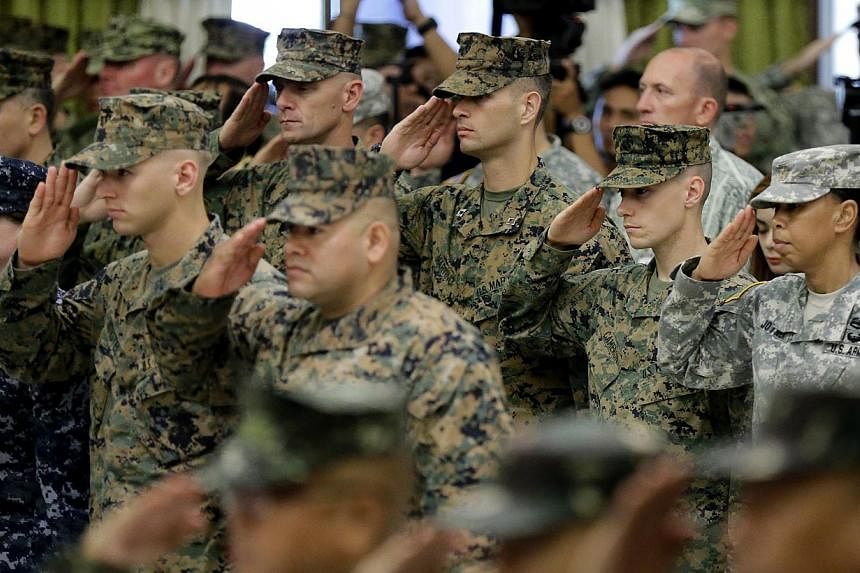WASHINGTON (REUTERS) - Sexual assault in the US military declined over the past two years, and studies found that men and women experience the crime in different circumstances, offering new insight into curbing the problem, the Pentagon said in an annual report on Friday.
Officials said a 27 per cent drop in the prevalence of sexual assault, coupled with an increase in the number of people actually reporting the crime was positive news because it showed Pentagon efforts to fight the problem were bearing fruit.
The department's annual report on sexual assault in the military said 6,131 people reported the crime in the 2014 fiscal year, an 11 per cent increase over the previous year and a 70 per cent jump over 2012.
Officials said the figures showed troops were more confident about reporting the crime.
At the same time a survey conducted every two years estimated a total 18,900 military personnel experienced unwanted sexual contact in 2014, down from about 26,000 in 2012, a drop of 27 per cent.
The number included 10,400 men and 8,500 women.
A new Rand survey that aimed to clarify the meaning of unwanted sexual contact reported very similar numbers, with 10,600 men and 9,600 women saying they experienced a sexual assault in 2014.
The Pentagon plans to use the new survey by the Rand research organisation going forward.
Retaliation for reporting sexual assault continued to be a concern, with 62 per cent of women assault victims saying they had been subjected to some form of social or professional retaliation. The finding prompted Defence Secretary Ash Carter to ask for a comprehensive strategy to prevent retaliation.
The US military has been under intense pressure to address the problem of sexual assault following a spate of high-profile incidents in recent years. Pentagon brass and congressional leaders have ordered scores of initiatives to tackle the issue.
A Rand military workplace study in 2014 showed that men and women report fundamentally different circumstances surrounding their sexual assaults.
Men were more likely than women to experience multiple incidents over the year and to characterise it as hazing intended to humiliate them, the survey found.
They also were more likely to say the assault occurred in the workplace and that no alcohol was involved, the report found. Sexual assault of women often involves alcohol and takes place outside the workplace.
The tendency among men to view the incident as hazing rather than sexual assault could result in under reporting of offenses, the report concluded.
The findings prompted Carter to direct the department to develop gender-specific steps to address the sexual assault problem.

